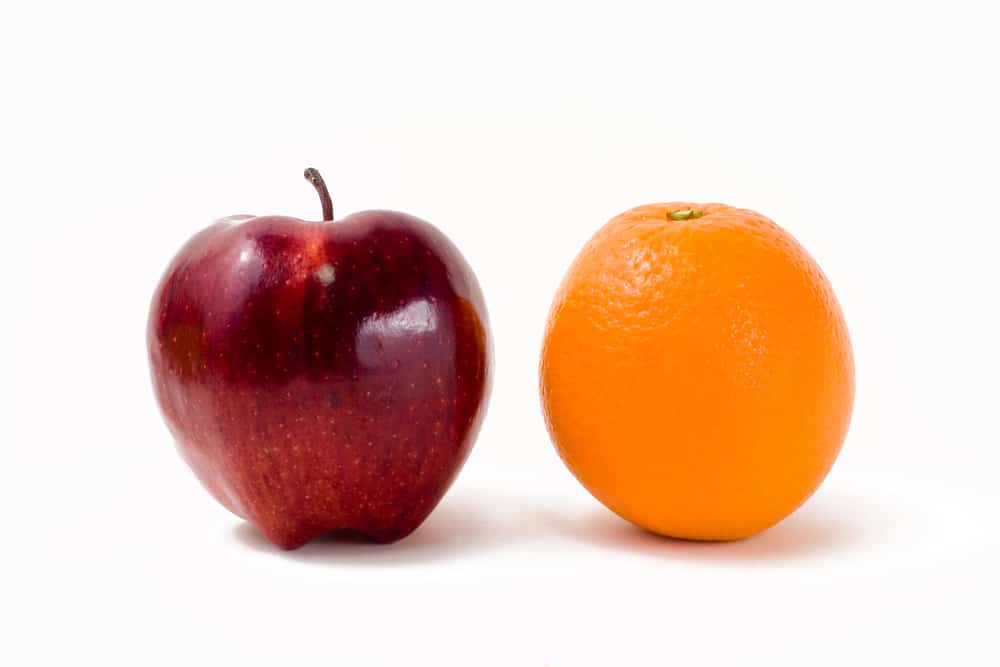Every cloud has a silver lining
Meaning: Try and be as optimistic as you can be, however difficult you are finding the situation at the moment, better times will come in the future.
Example: Every cloud has a silver lining, you will find a new job very soon.
A hot potato
Meaning: People talking about a current topic which cannot be agreed upon.
Example: The subject of Brexit is a hot potato.
Give someone the benefit of the doubt
Meaning: Believe what the person is or has said, until there is proof.
Example: Give him the benefit of the doubt, he may not have been there.
Let sleeping dogs lie
Meaning: Leave the situation as it is, do not get involved.
Example: Let sleeping dogs lie, you were not there so you cannot comment.
Once in a blue moon
Meaning: Something happens extremely rarely.
Example: Once in a blue moon there will be an eclipse of the sun by the moon.
Steal someone’s thunder
Meaning: Take the credit for a situation that someone else deserves
Example: He stole his colleague’s thunder about doing an excellent job.
Best of both words
Meaning: A person has all the advantages of a given situation.
Example: They have the best of both words as they spend half the year in England. And the rest of the year in Switzerland.
Don’t count your chickens before the eggs have hatched
Meaning: Do not plan something as the event may not occur.
Example: Don’t count your chickens before the eggs have hatched as the deal may not
happen.
It takes two to tango
Meaning: Two or more people could be involved in a situation.
Example: It takes two to tango, so there are more people involved in the problem
in the firm than you think.
Your guess is as good as mine
Meaning: A person does not know the answer
Example: Your guess is as good as mine as to where they both went last night.
See eye to eye
Meaning: To agree with someone else on a subject.
Example: We see eye to eye on how to progress the matter further.
A picture paints a thousand words
Meaning: To make a presentation to visually show what you want to do or achieve.
Example: The picture painted a thousand words of how he thought the firm should develop.
Catch someone off guard
Meaning: To catch someone by surprise
Example: He was caught off guard when they asked him to be the new chairman.
Hear it on the grapevine
Meaning: To hear rumours about a person or an event which may or may not have happened.
Example: She heard it on the grapevine that he had been promoted.
Get down to business
Meaning: To get the meeting started properly
Example: As every member of the team is now here, we can get down to business and start the meeting.
Back to square one
Meaning: To go back to the beginning and start again.
Example: The project was not good enough. We need to go back to square one and start again.
Fifty fifty
Meaning: To divide something equally ie to divide in half
Example: Divide the cakes fifty fifty
Go the extra mile
Meaning: To do more than is expected of you
Example: He went the extra mile to ensure everything was finished on time.
On the same page
Meaning: Two people are in agreement about a situation.
Example: We are on the same page as to how to take the situation forward now.
Don’t rock the boat
Meaning: Do not cause a problem or make an issue
Example: Don’t rock the boat about the costs of the project.
Don’t upset the apple cart
Meaning: Rather like don’t rock the boat, do not make a fuss.
Example Don’t upset the apple card by making a scene.
The sky’s the limit
Meaning: A person can achieve anything they want.
Example: The sky’s the limit, work hard and you will progress to the top of the firm.
The elephant in the room
Meaning: This relates to an obvious issue that is not being talked about
Example: Talk about the elephant in the room and deal with the major issue that needs to be discussed now.
Take the bull by the horns
Meaning: Similar to the elephant in the room. Deal with the problem.
Example: Take the bull by the horns, you must sort out the major problems.
In the black
Meaning: The business is earning money and making a profit.
Example: Finally, the business is in the black as we have had a good year and made
more profits than we thought we would make.
In the red
Meaning: The business is not making any profit and so is losing money.
Example: The business is in the red as they expanded too quickly and their overheads are too high.
Read between the lines
Meaning: To understand something that may not be entirely clear
Example: Read between the lines, work out what is not being said at the meeting and sort out the problem.
Uphill battle
Meaning: There are many obstacles to sort out before we achieve what we want.
Example: There is an uphill battle to win the contract.
No time to lose
Meaning: Something must be finished very soon
Example: He has no time to lose as his project is due in first thing tomorrow morning.
Word and mouth:
Meaning: News which spreads very fast as people tell other people the same news.
Example: The news spread by word and mouth that the new hotel was very successful.
Throw in the towel
Meaning: To give up, leave or quit
Example: He threw in the towel and left his job as he was unhappy.
Absence makes the heart grow fonder
Meaning: Being away for a while from someone or something makes you miss/appreciate that person or situation.
Example: Absence made his heart grow fonder and he realised he missed her terribly.
A watch pot never boils
Meaning: A situation or event can take far longer than expected. Don’t keep watching for developments.
Example: A watch pot never boils when you are waiting for something to cook more quickly.
Better late than never
Meaning: It is better to finish something no matter how long it takes to do.
Example: He finally finished the paper. Better late than never as it was due last month.
Don’t put off until tomorrow what you can do today.
Meaning: Finish what needs to be finished today rather than tomorrow.
Example: Don’t put off until tomorrow – finish the project today.
Good things come to those who wait
Meaning: Be patient. Good will come out of the situation.
Example: Good things come to those who wait. Your promotion will come soon.
Birds of a feather
Meaning: People who are like minded often spend more time together.
Example: Those two are birds of a feather. No wonder they meet so often.
There is no time like the present
Meaning: Do what you want to do now. Do not put off until tomorrow.
Example: There is no time like the present. You need to finish your project and you have the time to finish it now.
If it ain’t broke don’t fix it
Meaning: If something is already or still working, leave it as it is as it is still working.
Example: If it ain’t broke don’t fix it, the car still works so do not buy a new one.
There is no such thing as a free lunch
Meaning: Everything has a hidden cost.
Example: There is no such thing as a free lunch. He wants you to invest in his
Company.
Practice makes perfect
Meaning: Keep practising and you will become better at it.
Example: You will become a great tennis player. Practice makes perfect.
When in Rome, do as the Romans do
Meaning: When you are doing something new, act like others do in that situation.
Example: Try eating English food when in England. When in Rome, do as the Romans do.
Laughter is the spice of life, laugh on (also known as laughter is the best medicine)
Meaning: Laughing can help us get through a difficult time in our lives.
Example: Laughter is the spice of life, laugh on and we will help cheer you up.
Don’t judge a book by its cover
Meaning: Do not be quick to judge a person or a book – you might like the person more than you think you will/you may enjoy the book more than you expected.
Example: Don’t judge a book by its cover. The book is excellent and I recommend that you try reading it again.
Honesty is the best policy
Meaning: Telling the truth is always the better option.
Example: Honesty is the best policy. Tell your manager you made a mistake.





















English Idioms with Common Verbs
1. Hit the books

Literally, hit the books means to physically hit, punch or slap your reading books. However, this is a commonly used expression among students, especially American college students who have a lot of studying to do. It simply means “to study,” and is a way of telling your friends that you’re going to study.
It could be for a final exam, a midterm test or even an English exam.
“Sorry but I can’t watch the game with you tonight, I have to hit the books. I have a huge exam next week!”
2. Hit the sack

Just like the first idiom, the literal meaning of this would be physically hitting or beating a sack (a large bag usually used for carrying things in bulk such as flour, rice or even soil). But actually to hit the sack means to go to bed, and you’d use this to tell your friends or family that you’re really tired, so you’re going to sleep.
Instead of saying hit the sack you can also say hit the hay.
“It’s time for me to hit the sack, I’m so tired.”
3. Twist someone’s arm

To twist someone’s arm literally means to take a person’s arm and turn it around, which could be really painful if you take it exactly word-for-word. If your arm has been twisted it means that someone has done a great job of convincing you to do something you might not have wanted to to do.
And if you manage to twist someone else’s arm it means that you’re great at convincing them, and they’ve finally agreed to do something after you’ve been begging them.
“Jake, you should really come to the party tonight!”
“You know I can’t, I have to hit the books (study).”
“C’mon, you have to come! It’s going to be so much fun and there are going to be lots of girls there. Please come?”
“Pretty girls? Oh all right, you’ve twisted my arm, I’ll come!”
4. Stab someone in the back

If we take this idiom literally, we could find ourselves in a whole lot of trouble with the police, as it would mean taking a knife or another sharp object and putting it into a person’s back.
However, as an idiom, to stab someone in the back means to hurt someone who was close to us and trusted us by betraying them secretly and breaking their trust. We call the person who does this a back stabber.
“Did you hear that Sarah stabbed Kate in the back last week?”
“No! I thought they were best friends, what did she do?”
“She told their boss that Kate wasn’t interested in a promotion at work and Sarah got it instead.”
“Wow, that’s the ultimate betrayal! No wonder they’re not friends anymore.”
5. Lose your touch

Literally, this means to no longer have the ability to touch or feel with your fingers or hands. But to lose your touch actually means that you lose an ability or talent you once had when dealing with things, people or situations.
We use this when you’re usually good at a certain skill or talent, but then things start to go wrong.
“I don’t understand why none of the girls here want to speak to me.”
“It looks like you’ve lost your touch with the ladies.”
“Oh no, they used to love me, what happened?”
6. Sit tight

Sit tight is a great example of why you can’t translate idioms in English word-for-word. It literally would mean that you sit down squeezing your body in a tight way—which if you did would be very uncomfortable, not to mention you’d look really strange.
But if a person tells you to sit tight they want you to wait patiently and take no action until you hear otherwise.
“Mrs. Carter, do you have any idea when the exam results are going to come out?”
“Who knows Johnny, sometimes they come out quickly but it could take some time. You’re just going to have to sit tight and wait.”
7. Pitch in

This phrase actually makes no sense if you try to take it literally. However, figuratively speaking, it means to contribute (give) to something or someone or to join in.
So if your dad tells the family that he wants everyone to pitch in this weekend and help clear the backyard, it means he wants everyone to join in on the efforts to clear the yard and get things done quicker.
“What are you going to buy Sally for her birthday?”
“I don’t know. I don’t have much money.”
“Maybe we can all pitch in and buy her something great.”
The above conversation suggests that every one of Sally’s friends should contribute a little bit of money so they can afford to buy her a bigger and better present together.
8. Go cold turkey

Sound weird? Well, you’re right, it does. How can anyone literally go cold turkey? A person can’t transform into the bird we all love to eat for celebrations such as Christmas and Thanksgiving.
To go cold turkey means to suddenly quit or stop addictive or dangerous behavior such as smoking or drinking alcohol.
This idiom is said to have originated in the early 20th century and suggests that a person who suddenly quits something addictive—such as drugs or alcohol—suffers from side effects that make them look and feel like a cold, uncooked turkey. This includes pale (very white) skin and goosebumps (little small bumps on the skin when we’re cold or sick).
“Shall I get your mom a glass of wine?”
“No, she’s stopped drinking.”
“Really, why?”
“I don’t know. A few months ago, she just announced one day she’s quitting drinking.”
“She just quit cold turkey?”
“Yes, just like that!”
9. Face the music

In literal terms, facing the music means turning your body to the direction of the music and standing in front of it. But if your friend or your parents tell you to face the music, there’s a much harsher meaning.
It means to “face reality” or to deal with the reality of the situation and accept all the consequences, good or bad (but mostly bad). Perhaps you’ve been avoiding something because you feel unsure or scared of the outcome. Maybe you lied to your teacher and she discovered the truth and now you have to face the music and accept the punishment.
“I can’t understand why I failed math.”
“You know you didn’t study hard, so you’re going to have to face the music and take the class again next semester if you really want to graduate when you do.”
10. Ring a bell

If we look at the literal meaning of ring a bell, it’s just that: You could be ringing the school bell to tell students it’s time to go to class or ringing someone’s doorbell.
But the idiom means that somebody has mentioned something that sounds familiar to you, perhaps you’ve heard it before. In other words, when someone says something that you believe you’ve heard in the past, alarm bells start ringing and you try to remember how or why that name or place sounds familiar.
“You’ve met my friend Amy Adams, right?”
“Hmmm, I’m not sure, but that name rings a bell. Was she the one who went to Paris last year?”
11. Blow off steam

In reality a person cannot blow off steam (the hot rising air from boiling water)—only electrical equipment can, such as the electric jug (appliance for boiling water for coffee). So what does it mean when a person blows off steam?
If you’re feeling angry, stressed or are experiencing some strong feelings and you want to get rid of them so you feel better again, you will blow off steam by doing something such as exercising to get rid of the stress.
“Why is Nick so angry and where did he go?”
“He had a fight with his brother, so he went for a run to blow off steam.”
12. Cut to the chase

When somebody tells you to cut to the chase it means that you’ve been talking too long and haven’t gotten to the point. When a person uses this idiom, they’re telling you to hurry up and get to the important part, without all the details. Be careful how you use this idiom, because if used while talking to someone like a college professor or your boss, it’s rude and disrespectful.
If you’re speaking to a group of people, like your employees, and say I’m going to cut to the chase, it means that there are a few things that need to be said but there’s very little time, so you’ll skip to the important parts so everyone understands.
“Hi guys, as we don’t have much time here, so I’m going to cut to the chase. We’ve been having some major problems in the office lately.”
English Idioms with Common Prepositions
Prepositions are words that indicate where one thing is in relation to another. These include the words up, on and over as you’ll see in the idioms below.
13. Up in the air

When we literally think about something being up in the air, we have the idea that something’s floating or flying in the sky, perhaps an airplane or a balloon. But really if someone tells you that things are up in the air it means that these things are uncertain or unsure. Definite plans have not been made yet.
“Jen, have you set a date for the wedding yet?”
“Not exactly, things are up in the air and we’re not sure if our families can make it on the day we wanted. Hopefully we’ll know soon and we’ll let you know as soon as possible.”
14. On the ball

If you look at this phrase literally, it means to be either standing or sitting on a ball—but who would do that?
If you’re on the ball it means that you’re very quick to understand certain things, very prepared for something or react quickly (and correctly) to a situation.
For example, if you’re planning your wedding that’s still one year away from now and you’ve almost finished with all the planning already, you’re definitely on the ball because not many people are that prepared!
“Wow, you’ve already finished your assignments? They aren’t due until next week, you’re really on the ball. I wish I could be more organized.”
15. Get over something

If you think about it, it’s possible to literally get over something, for example get over a fence—but this is not how the phrase is generally used in the English language.
Imagine having a really difficult time, like breaking up with your girlfriend or boyfriend—it’s hard. But eventually once time passes and you no longer think about your ex, it means that you’ve gotten over him/her, you no longer worry about it and it no longer affects you in a negative way. It’s also possible to get over an illness, which would mean that you’ve fully recovered.
“How’s Paula? Has she gotten over the death of her dog yet?”
“I think so. She’s already talking about getting a new one.”
Cash and Money Idioms in English
16. Look like a million dollars/bucks

Wouldn’t it be great if we really could look like a million dollars? We’d be rich, but that’s not the case. If someone tells you that you look like a million bucks, you should take it as a huge compliment because it means you look absolutely fabulous and really attractive.
While sometimes we use this idiom for guys, it’s more commonly used to compliment females. And while some of your female friends may look beautiful every day, you should save this one for when they’ve really made an effort and it’s a special occasion, like prom or a wedding.
“Wow, Mary, you look like a million dollars/bucks this evening. I love your dress!”
17. Born with a silver spoon in one’s mouth
Someone who comes from a wealthy and successful family.
“John was born with a silver spoon in his mouth. His parents bought him everything he wanted and sent him to the best private schools.”
18. To go from rags to riches
To go from being poor to having a lot of money.
“Actor Jim Carrey went from rags to riches. At one time, he was living in a van, but he continued to work hard and eventually became one of the highest-paid comedians in the world.”
19. Pay an arm and a leg for something
To pay a lot of money for something. You can also say that something “costs an arm and a leg.”
“The price of chocolate has doubled. I nearly paid an arm and a leg for a small candy bar.”
“Chocolate costs an arm and a leg now.”
20. To have sticky fingers
To be a thief.
“The manager fired the cashier because he had sticky fingers. He stole more than $200 in a month.”
21. To give a run for one’s money
To compete with someone at their level and make them really work for their win.
“Joe really gave me a run for my money in the chess tournament. He almost beat me!”
22. To pony up
To pay for something or settle a debt.
“Pony up and give me the $5 you owe me.”
“I told my roommate Jane to pony up her portion of the rent money.”
23. To ante up
To pay someone (similar to “pony up”).
The expression ante up comes from the game of poker, where players bet their money before the cards are dealt. If this expression looks familiar, it’s because ante is also Latin for “before.”
Over time, the idiom has come to refer to any type of payment someone owes—not just in poker.
“You’d better ante up and give me that $10 I loaned you last week.”
It can also be used to refer to other services besides money that someone’s owed.
Joe: “I’m tired of doing the housework by myself. You need to ante up or find a new roommate.”
Thomas: “I’m sorry. I’ll help more around the house.”
In this sentence, Joe uses ante up to mean that Thomas needs to start helping with the housework.
A similar idiom is to up the ante, which means “to raise the stakes/to raise the bet.” In poker, when people up the ante, they bet more money than the person before them. This is used similarly in everyday conversation, when someone raises a bet or agrees to do more.
“Susan agreed to type up the group report, but Billy upped the ante when he said he’d type, print and deliver the report to Professor Stephens.”
“I wanted to place a $10 bet on the soccer match, but Daniel upped the ante and raised the bet to $50.”
24. Break even
To neither gain nor lose money.
“The trip to the beach cost me $100, but I almost broke even after winning $90 in a contest.”
25. Break the bank
To be very expensive.
“Taking a week-long vacation would break the bank. There’s no way I could afford to do it.”
26. To be closefisted
Someone who doesn’t want to spend money. Similar to being stingy.
“Carl is so closefisted, he won’t even buy snacks for the Christmas party.”
27. To go Dutch
Everyone pays for their own meal at a restaurant.
“We had a date last night and we went Dutch. I paid for my coffee and she paid for her salad.”
28. Shell out money/to fork over money
To pay for something (usually expensive).
“I wish I didn’t buy that new car now that I’m shelling out $1,000 a month in payments.”
“She had to fork over a lot of money for traffic fines last month.”
29. Midas touch
To be able to make money easily. This idiom comes from the story of King Midas, who turned everything he touched into gold.
“Jane really has the Midas touch. Every business she starts becomes very successful.”
30. In the red/In the black
To lose more money than you make.
“I’m in the red this month after paying that speeding ticket. I’ll need to find some work over the weekend for extra money.”
The opposite of being in the red is being in the black, which means that you’ve made more money than you spent.
“After working a couple of small jobs over the weekend, I earned an extra $500 and am back in the black.”
31. Receive a kickback
To receive money illegally/to receive bribes.
“The police chief was arrested after the news reported he was receiving kickbacks from criminals to ignore certain crimes.”
“The traffic cop receives kickbacks for not writing tickets to politicians.”
32. Living hand to mouth
To live without a lot of money.
“The family has been living hand to mouth ever since their father lost his job.”
33. To be loaded
To have a lot of money.
“Billy paid his Harvard Law School tuition with cash. His family is loaded.”
34. Make ends meet
To make the money needed to pay for food and bills.
“I don’t make much from my job as a cashier, but I’m able to make ends meet. I always have enough money for rent and groceries.”
35. As genuine as a three-dollar bill
An American idiom used sarcastically to mean that something’s fake.
When something’s genuine, that means it’s real. But the U.S. never made three-dollar bills, which means that there’s no such thing as a genuine three-dollar bill.
For example, the Louvre Museum in Paris has the genuine Mona Lisa. If your school has a picture of the Mona Lisa hanging in the art room, it’s not genuine. It’s a copy. That means your school’s copy of the Mona Lisa is as genuine as a three-dollar bill.
“That man tried to sell me a Lamborghini from 1953. He said it was the first Lamborghini model ever made but the company didn’t exist until 10 years later. His car was as genuine as a three-dollar bill.”
Body Part Idioms in English
36. Rule of thumb

Can thumbs rule or can you literally rule a thumb? If you think about it logically, it means absolutely nothing and makes no sense. However, if you hear someone say as a rule of thumb, they mean that it’s a general unwritten rule for whatever they’re talking about.
These rules of thumb are not based on science or research, and are instead just general principles. For example, there’s no written scientific rule that you must add oil to boiling water when cooking pasta, but it’s a rule of thumb and is practiced by most people so the pasta won’t stick to the bottom of the pan.
“As a rule of thumb you should always pay for your date’s dinner.”
“Why? There’s no rule stating that!”
“Yes, but it’s what all gentlemen do.”
37. Keep your chin up

Did you just have a massive fight with your friend? Did you fail your English finals? Did your team lose the final match? Did you lose your job?
If you answered “yes” to any of the questions, then you’re probably feeling sad and a little depressed, right?
In this situation, a supportive friend might tell you to keep your chin up. When they tell you this, they’re showing their support for you, and it’s a way of saying, “Stay strong, you’ll get through this. Don’t let these things affect you too badly.”
“Hey, Keiren, have you had any luck finding work yet?”
“No, nothing, it’s really depressing, there’s nothing out there!”
“Don’t worry, you’ll find something soon, keep your chin up buddy and don’t stress.”
38. Find your feet

Is it possible to lose your feet? No way, they’re attached to your body! So what does it mean when somebody says they’re trying to find their feet?
If you find yourself in a new situation, for example living in a new country and having to get used to a new college, you could say I’m still finding my feet. It means that you’re still adjusting and getting used to the new environment.
“Lee, how’s your son doing in America?”
“He’s doing okay. He’s learned where the college is but is still finding his feet with everything else. I guess it’ll take time for him to get used to it all.”
Food Idioms
39. Spice things up
To spice things up means to make them more interesting or exciting.
“Instead of just buying Sam a birthday gift, let’s spice things up by taking him out for dinner.”
40. A piece of cake
A piece of cake refers to a task or job that’s easy to complete or accomplish.
“I expected the English test to be difficult but it was a piece of cake.”
41. Cool as a cucumber
Cucumbers have a refreshing taste and leave you with a cool, calm feeling. So if you’re cool as a cucumber, you’re someone who’s very calm and relaxed.
“My friend is nervous about taking his driving test but I’m cool as a cucumber.”
42. A couch potato
A couch potato refers to someone who spends a lot of time sitting on the couch watching TV.
“After my uncle retired from his job, he became a couch potato.”
43. Bring home the bacon
To bring home the bacon means to make an income or earn a living to support your family.
“Ever since her father was injured, she’s been working two jobs to bring home the bacon.”
44. In hot water
When someone is in hot water, they’re in a bad situation or serious trouble.
“My brother is in hot water for failing all his college classes.”
45. Compare apples and oranges
Apples are very different from oranges both in looks and taste. It’s hard to compare two things that are so unlike each other. So then, to compare apples and oranges is to compare two very different things.
“I’m not sure which I enjoy more—pottery or dancing. It’s like comparing apples and oranges.”
46. Not one’s cup of tea
If something is not your cup of tea, it’s an activity you have no interest in, don’t enjoy or don’t do well in.
“Camping is really not my cup of tea so I’m going to visit my friend in New York instead.”
47. Eat like a bird
How much does a bird eat? Not very much, right? So to eat like a bird is to eat very little.
“Don’t trouble yourself cooking such a big meal. I eat like a bird.”
48. Eat like a horse
Now, a horse is much bigger than a bird. So how much do you think a horse eats? That’s right, to eat like a horse is to eat a large amount of food.
“My mother has to cook a lot of food when my brother comes to visit. He eats like a horse.”
49. Butter [someone] up
To butter someone up is to please or flatter someone in order to win his or her favor. This separable phrase may be used in the format butter [someone] up or butter up [someone].
“Everyone seems to be trying to butter up the new boss hoping to become her favorite.”
50. Food for thought
Food for thought refers to something that’s worth thinking carefully about.
“Moving to another state is food for thought for many of those affected by the recent hurricanes in Texas and Florida.”
51. A smart cookie
Here’s an easy one. A smart cookie is an intelligent person.
“It shouldn’t be hard too hard for a smart cookie like you to learn Spanish.”
52. Packed like sardines

What do you see when you open up a can of sardines? Yes, the fish crammed inside the can. So packed like sardines describes a place or situation that’s very crowded with people (or animals)—for example, a concert hall or sports event.
“Were you at the football game last night? The stadium was packed like sardines.”
53. Spill the beans
You accidentally knock over a bowl of beans and they all spill out. Think of this image and you’ll remember that spill the beans means to accidentally or prematurely give out information that’s supposed to be kept secret.
“We were planning a surprise birthday party for Joyce this weekend. But this morning, Owen spilled the beans and now it’s no longer a surprise.”
54. A bad apple
Imagine a basket of apples with one rotten apple inside. This picture will help you remember that a bad apple is someone who creates problems or trouble, or is a bad influence on the other people in a group.
“Instead of focusing on college, he spends his time hanging out with bad apples.”
55. Bread and butter
Bread and butter is a basic food that many of us eat. So the idiom bread and butter refers to a job that makes the money you need to live and afford basic necessities like food, housing, etc.
“Fishing is the bread and butter of the friendly people I met on the island last summer.”
56. Buy a lemon
To buy a lemon means to buy something (usually a motor vehicle) that doesn’t work well and is therefore worthless.
“The car looked so new and shiny I had no way of knowing I was buying a lemon.”
57. A hard nut to crack
Is it easy to crack open a nut? Not always. Well, a hard nut to crack refers to a person who’s difficult to deal with or to get to know.
“I tried to be friendly with her but I was told she’s a hard nut to crack.”
58. Have a sweet tooth
Do you like eating cakes, candy and other sweet-tasting food? If you do, then you can say you have a sweet tooth.
“Yes, I definitely have a sweet tooth. I can never walk past a bakery and not stop to buy myself a slice of chocolate cake.”
Nature Idioms
59. Under the weather

Can you be under the weather literally? Probably yes, if you think about standing under the clouds, rain and sun, but it makes no sense.
If you’re feeling under the weather, you’re not your usual self and could be feeling a little sick. The sick feeling is nothing serious—perhaps it’s just extreme tiredness from studying too much, or having a bad headache because you’re starting to get the flu.
“What’s wrong with Katy, mom?”
“She’s feeling a little under the weather so be quiet and let her rest.”
60. A storm is brewing
There will be trouble or emotional upset in the near future.
“She decided to go ahead with their wedding, even though all they’ve been doing lately is arguing. I can sense a storm is brewing.”
61. Calm before the storm
An unusually quiet period before a period of upheaval (problems, chaos).
“The strange quietness in town made her feel peaceful. Little did she know, it was just the calm before the storm.”
62. Weather a storm
To survive a dangerous event or effectively deal with a difficult situation.
“Last year, they had some financial difficulties when her husband was fired. Together, they weathered the storm and figured out how to keep going.”
63. When it rains, it pours
Bad things occur in large numbers, but many big things happen all at once.
“First he was laid off, then his wife got into a car accident. When it rains, it pours.“
64. Chasing rainbows
Following dreams, trying to do something that can’t be achieved.
“His paintings have neither style nor imagination, but he insists on being a professional painter. He’s always chasing rainbows.”
65. Rain or shine
Used to indicate that something will happen no matter what. This is one of the rare idioms that’s also often used literally, for outdoor events that’ll take place whether it rains or not.
“I’ll see you at the airport, rain or shine.”
66. Under the sun
Refers to everything on Earth, usually used as part of a superlative.
“Gili Trawangan must be one of the most beautiful islands under the sun.”
67. Once in a blue moon
Very rarely.
“He used to call his grandma once in a blue moon. Now that she has passed away, he regrets not making more of an effort to keep in touch.”
68. Every cloud has a silver lining
There’s a good aspect to every bad situation.
“Don’t worry about losing your job. It’ll be okay. Every cloud has a silver lining!“
69. A rising tide lifts all boats
When an economy is performing well, all of the people involved will benefit from it.
“When the economy showed the first signs of recovering, everyone started investing and spending more. A rising tide lifts all boats.“
70. Get into deep water
To be in trouble. Very similar to the idiom in hot water that we discussed above.
“He got into deep water when he borrowed a lot of money from a loan shark.”
71. Pour oil on troubled waters
To try to make people feel better and become friendly again after an argument. This expression comes from the calming effect that oil has on waves as it spreads over the surface of the sea.
With the ecological disasters following big oil spillage in recent years, some people might now think of this phrase rather differently compared to its original meaning—but it’s still interesting to know about.
“She hated seeing her two best friends arguing, so she got them together and poured oil on troubled waters.”
72. Make waves
To cause trouble, to change things in a dramatic way.
“She likes to make waves with her creative marketing campaigns. They get a lot of attention from customers.”
73. Go with the flow
To relax and go along with whatever’s happening.
“Quite often in life, good things happen when you don’t make plans. Just go with the flow and see what happens!”
74. Lost at sea
To be confused about something or to feel unsure about what to do.
“I am lost at sea with this new system at work. I just can’t understand it.”
75. Sail close to the wind
To act just within the limits of what’s legal or socially acceptable, to push boundaries.
“They fired their accountant because he sailed too close to the wind.”
76. Make a mountain out of a molehill
To exaggerate the severity of a situation.
“She shouted at him angrily for being five minutes late, but it really didn’t matter that much. She really made a mountain out of a molehill.”
77. Gain ground
To become popular, to make progress, to advance.
“As Airbnb gains ground in many cities all over the world, many locals complain that they can no longer find a place to live. Landlords would rather rent their places out to tourists and earn more money.”
78. Walking on air
Very excited or happy. “Over the moon,” “on cloud nine,” “in seventh heaven” and “in good spirits” are a few more advanced English expressions you can use to talk about happiness.
“She’s been walking on air since she found out that she’s pregnant.”
79. Many moons ago
This is one of those English expressions that’s a little bit formal or dated. You’ll most likely hear it in stories, or when someone is trying to create a dramatic effect.
“Many moons ago, we used to be two very close friends. Now we’ve gone separate ways and lost contact.”
80. Castle in the sky
A daydream, a hope, especially for one’s life, that’s unlikely to come true.
“World traveling used to be a castle in the sky for most people a few decades ago, but with cheap flight tickets and the global use of English, many youngsters are living that dream.”
81. Down to earth
To be practical and sensible.
“It’s a stereotype, but Dutch people are known for being down to earth.”
82. Salt of the earth
Being honest and good.
“My father is the salt of the earth. He works hard and always helps people who are in need.”
83. The tip of the iceberg
Just a small part of something much bigger.
“Exceptionally long drought periods are just the tip of the iceberg when it comes to the global impact of climate change.”
84. Break the ice
To attempt to become friends with someone.
“He made a weather joke to break the ice.”
85. Sell ice to Eskimos
To be able to sell anything to anyone; to persuade people to go against their best interests or to accept something unnecessary or preposterous.
The word Eskimo refers to indigenous people who live in very cold, snowy regions—they don’t need any ice! If you can sell ice to them, you can sell anything to anyone.
While it’s important to recognize common idioms like this one, be aware that the word Eskimo is considered derogatory (rude; prejudiced) by many people.
“He’s a gifted salesman, he could sell ice to Eskimos.”
86. Bury your head in the sand
To (try to) avoid a particular situation by pretending that it doesn’t exist.
“Stop burying your head in the sand. You haven’t been happy with him for years, why are you staying together?”
87. Let the dust settle
To allow a situation to become calm or normal again after something exciting or unusual has happened.
“You just had big news yesterday, let the dust settle and don’t make any decisions yet.”
88. Clear as mud
Not clear at all, not easy to understand.
“He’s a great scientist, but I find his explanation of bacteria and microbes as clear as mud.”
89. As cold as stone
Being very cold and unemotional.
“In the Victorian times, many women were told to suppress their feelings and, thus, appeared as cold as stone.”
90. Between a rock and a hard place
In difficulty, faced with a choice between two unsatisfactory options.
“I can understand why she couldn’t make up her mind about what to do. She’s really between a rock and a hard place.”
Other English expressions with a similar meaning are:
- the lesser of two evils
- between the devil and the deep blue sea
- between Scylla and Charybdis
- Hobson’s choice
91. Nip something in the bud
To stop a bad situation from becoming worse by taking action at an early stage of its development.
“When the kid shows the first signs of misbehaving, you should nip that bad behavior in the bud.”
92. Barking up the wrong tree
Doing something that won’t give you the results you want.
“If you think she’s going to lend you money, you’re barking up the wrong tree. She never lends anyone anything.”
93. Out of the woods
The situation is still difficult but it’s improved or gotten easier. The hardest part of something is over.
“The surgery went very well and he just needs to recover now, so he’s officially out of the woods.”
94. Can’t see the forest for the trees
To be unable to see the whole situation clearly because you’re looking too closely at small details.
“He’s worried because the flowers haven’t all arrived, but everyone says the wedding has been perfect and beautiful. He just can’t see the forest for the trees.”
95. To hold out an olive branch
To offer to make peace (with a rival or enemy).
“After years of rivalry with her cousin, she decided to hold out an olive branch and go have fun together.”
96. Beat around the bush
To spend a long time getting to the main point of what you’re saying, especially because it’s embarrassing.
“I don’t have much time, so stop beating around the bush and tell me what actually happened.”



























































No comments:
Post a Comment